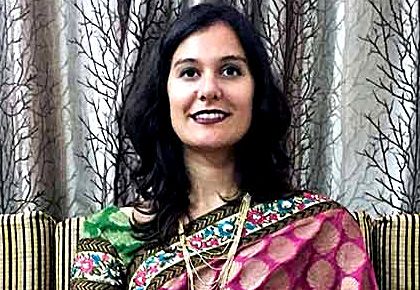Her great grandfather began sugar co-operatives in Maharashtra.
Her grandfather was an eight time MP.
Her uncle is currently leader of the Opposition in the Maharashtra assembly.
Her cousin joined the BJP on Tuesday, March 12.
Nila Vikhe Patil, who could one day become prime minister of Sweden, unravels her India connections in an e-mail interaction with Rediff.com's Vaihayasi Pande Daniel.
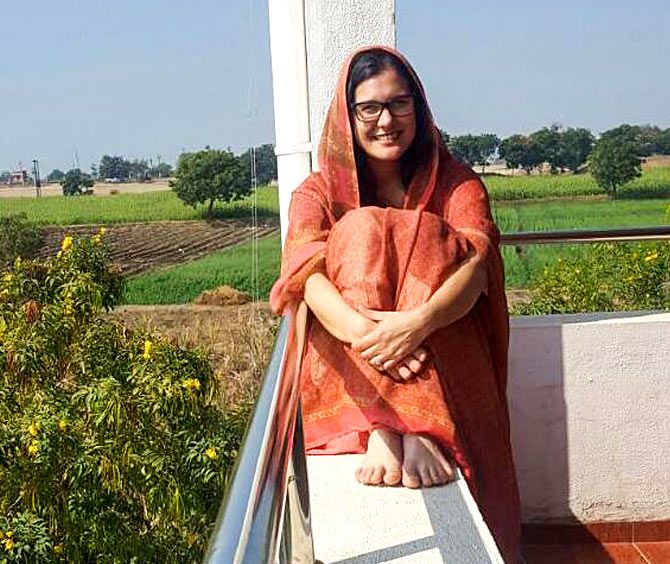
The Vikhe Patil family in Maharashtra have a storied past.
Two generations have been involved in Indian politics and three generations in public service and education.
Forefather Vithal Eknath Rao Vikhe Patil, a farmer who hailed from Loni, Ahmednagar district, north central Maharashtra, was awarded a Padma Shri for his pioneering efforts in establishing the first factory for the sugar cooperatives in 1950 at Pravaranagar in the then Bombay state to protect sugar growers.
It was proudly named Pravara Sahakari Sakhar Karkhana Ltd and was largely owned by the area's farmers. There is also a 2002 postage stamp, with his face on it, crowned by a turban, honouring him.
His son and grandson Balasaheb and Radhakrishna entered politics.
Balasaheb was an eight-time MP from Ahmednagar and Kopargaon, and a former Union minister in successive Congress and BJP governments, awarded the Padma Bhushan for his social work and contributions to education.
Radhakrishna, active in state politics and a member of the Congress party, is the current leader of the Opposition is the Maharashtra assembly.
His brother Ashok runs the Vikhe Patil educational trusts and institutions.
Radhakrishna's neurosurgeon son Sujay -- the third generation of this well-known Maharashtrian family -- has just entered politics.
Before that, Nila.
But thousands of miles away in Stockholm, Sweden.
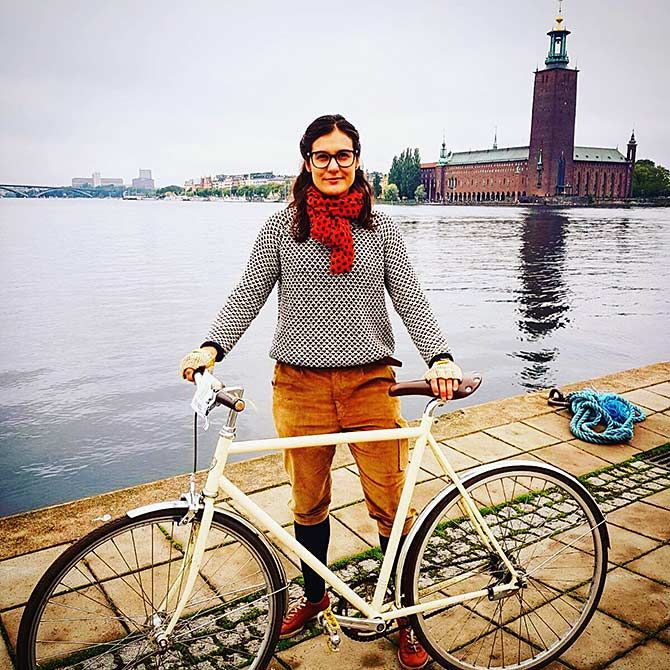
Dr Ashok Vikhe Patil's daughter Nila, 33, who is half Swedish but carries herself perfectly in a sari, joined that country's Green Party and was appointed an advisor to the prime minister's office for the first time in February 2016.
She was reappointed to the role just recently, after three years in office. "My work is to coordinate the politics on budget, taxation, constitutional issues, housing policy and enterprise as well as the ownership agenda of State-owned companies," she says.
Nila manages this through e-mail, telephone and meetings between people from different departments of the government and the other parties -- mainly between the two parties that form the government and in relation to the Swedish parliament.
"My objective is to find the best solution on how to get everyone to be on the same page or at least to accept the ruling that we give from the PMO on how to go about controversial issues and policy," she says.
Additionally, Nila feels she brings a certain reality to her job being part Indian: "India is a completely different place compared to Sweden. The weather is different, the air is different. The animals, plants and food is very different and India is almost like a different planet."
"In comparison to Sweden, India is a place where it feels as if there is always a carnival going on, with lots of bright colors, great food, people and music. India is a pungent masala," says Nila.
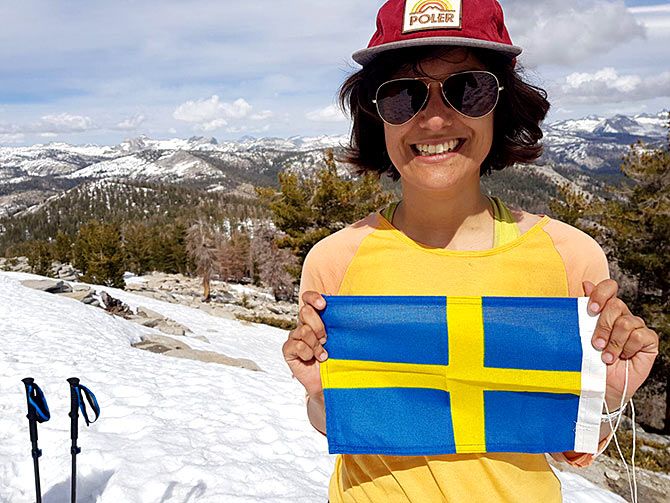
Contrasting the cultures, she goes on to explain the simple austerity of her mother's country: "Sweden is dark, cold and crisp. Every person is an individual, almost always dressed in fashionable black or grey. Our most festive food is salted meats or pickled fish, preserved to last the winters in a traditional way, served with boiled or baked potatoes and a cream-based sauce."
"To my job I carry with me the very useful knowledge that the world is a complex place with many different perspectives and where each person may have a different perspective."
Given her uncommon standpoint, is there a future nation-to-nation bonding that Nila envisions between India and Sweden, the two cultures that have etched her identity, especially since she has a fair chance of becoming a leader of that nation, in a New Europe where an Indian heads one of the countries of the European Union?
"India is such a bustling place where innovation and ingenuity is the common wisdom (with which one goes about one's) daily affairs, which has also led to many clever solutions. It is known all over the world that the best programmers are Indian."
"Sweden is a vast and quiet place, where people are isolated from each other by warm winter clothes and the all-covering social security and income tax-funded welfare systems, enabling everyone, who follows the rules, to lead a very comfortable life with equal opportunities, where most people feel important and like to contribute to society but through the system."
"I would like India to be a place where everyone has equal opportunities and Sweden a place where people feel proud of their country and care for their neighbour. I think we can learn this from each other."
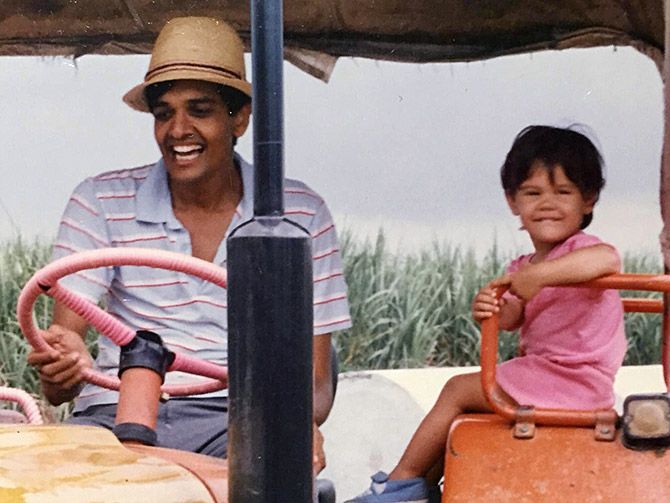
Nila, whose name is both Swedish and Indian (after her Swedish great, great, great grandmother -- "My father likes this name a lot") and had spent most of her childhood in the sleepy rural municipality of Tidaholm, Sweden, not far from Lake Vattern, after she moved away from India at a young age to live with her mother Eva-Lill Nilsson, a painter and teacher, maintains unique connections with her father's family.
Recounting how her parents met, "My father was in Sweden for business. My mother knew English and they met on a train, when she was being helpful in translating his order. He invited her to dinner to thank her. They maintained contact through letters and when she was planning a trip around the world she was invited to visit India."
She recalls, "I grew up in India until I started school in Sweden at seven. Before this I attended English medium preschool in Ahmednagar."
"In Sweden we lived in a small village Kungslena with only 200 people. We were a bunch of kids that roamed around until the church bells struck six and it was time for everyone to go home for dinner. We played in the fields and trees and forest. One of my favorite pastimes was building obstacles in the small stream that flowed in the ditches by the road. It was fascinating. I decided, when I was eight years old, that I would become a dam constructor."
"I loved playing outdoors so I really love the freedom of the weather in India. But in Sweden the freedom of space and possibilities of roaming freely and walking long distances is priceless."
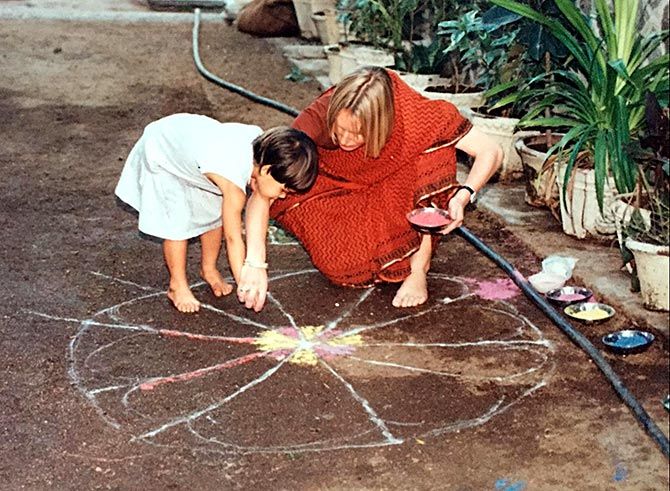
After first a degree in organisational theory and later majoring in finance and accounting from the prestigious Gothenburg School of Business, Economics and Law at the University of Gothenburg, Nila entered politics.
She joined the up-and-coming environment-oriented Green Party (Miljöpartiet de gröna), which today historically partners with the Stefan Lofven-led Swedish Social Democratic Party government, with 16 seats in the Riksdag, the Swedish parliament. Lofven, she remarks, is, "composed. Very funny and warm. A good leader."
Sweden's Greens, which was the first new political party to enter the Riksdag in 70 years, when it initially did in 1988, has been consolidating ever since and partnering with the government in power was a first too.
A party popular among the young, especially students, in Sweden, the Greens have come in on the plank of 'Solidarity that can be expressed in three ways: Solidarity with animals, nature, and the ecological system'.
That ideology coincides with Nila's fondness for the outdoors -- she signs off on her e-mails with party catchphrase 'Nu. Klimatet kan inte vänta' or 'Now. The climate can't wait' -- and was the impetus for her becoming a party member at the age of 15.
She has a chance of becoming the next MP from Stockholm for her party because she is next in line, should anyone resign or get another appointment.
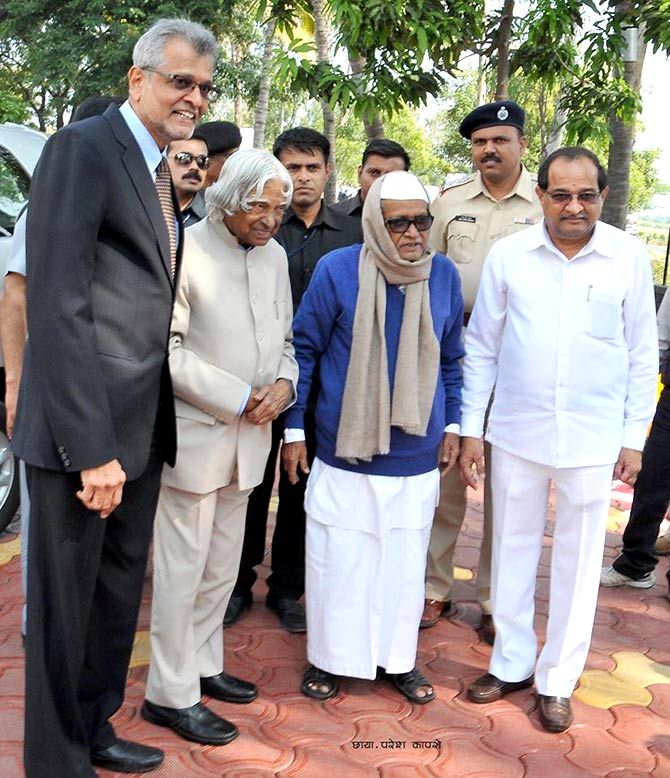
In the picture: Nila Vikhe Patil's father Ashok, left, with then President A P J Abdul Kalam, her grandfather Balasaheb, middle, and uncle Radhakrishna, far right. Photograph: Kind courtesy Radhakrisha Vikhe Patil/Facebook
Her paternal Indian grandfather Balasaheb, who died in December 2016, had a rare influence on her intriguing life. Nila said they had a very "nice" relationship.
"He came to visit us many times in Sweden as he frequently travelled to Europe for his political work. I remember once he came to (see) us in Sweden when I was 12 years old. I was eager for him to get to know me. As he (sat having) tea with my parents and grandparents, I one by one brought him the things I was most proud of having produced in school -- crafts, reports, drawings etc."
"When I, a few years later, joined the Green Party he was very proud and keenly followed my journey through my father's eyes."
Around that time, just before she turned 16, Balasaheb arrive again in Sweden to visit her. "We took a walk in the countryside and talked about the crops, the trees and the differences and similarities between our two countries. He was a very intelligent and humble man. I enjoyed his company and insight and being able to put my own idealistic thoughts forward without being put down."
"In retrospect, I think this careful guidance was a very formative experience for me. I also know that my grandmother loves me very much and that my father was very focused on that I should have good education and know my value as a human being, that women are equal to men and that daughters are as good as sons."
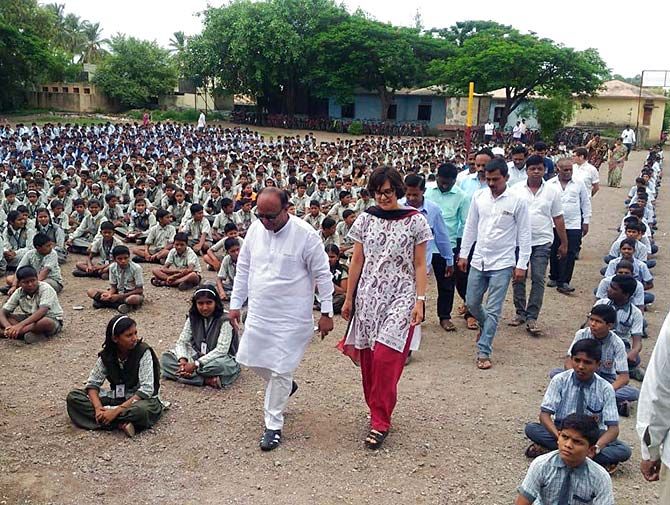
When Nila turned 18, this half-Indian, half-Swede took the unusual and thoughtful decision to move to India for a year. She worked with her father at what she termed was a WHO sub-organisation and an NGO, the International Association of Agricultural Medicine and Rural Health.
Nila lived with her grandparents and another uncle Rajendra in their rambling joint family home in Loni, then a town of about 10,000 people, 73 km from Ahmednagar.
She remembers: "As the distance to the office from the farm was about 2 km, I thought I could walk instead of having to wait for a car and driver every day. But it was so hot and dusty in the sun that I decided it was not a viable option."
"I was used to my freedom and needed to be able to move around a bit so I asked for a bicycle. My grandmother said no. But my father gave me permission and helped me buy one."
"I loved being able to go for outings and move freely around the village. It was still very hot, but at least the wind would be a little cooling. I still had it (the bicycle) until a few years ago. The feeling of being able to be independent is important to me, and perhaps a very Swedish trait when I think of it."
Nila, who has read a lot on India's history and Hindu mythology, now journeys to India and Loni almost yearly to meet and get closer to her Indian family and decode her DNA. And also to, of course, eat some of her favourite pithla, bhakri, sheepu bhaji, varan-rice, chicken curry, matki, vegetable hakka noodles, have long conversations (she knows a bit of Marathi) with her elderly aaji (paternal grandmother) Sindhutai Vikhe Patil and wear a few of those sumptuous Maharashtrian handloom saris.
"She (her aaji) askes me if I had a meal, how my mother is doing and when I will get married. I can reply to this in Marathi :) We get help from family, cousins and nurses to translate the rest. We sit together, have tea, watch Marathi serials and I show her pictures from Sweden."
When her plane touches down in Mumbai on each trip, Nila feels "very happy and thankful to be welcome back every time by my father's country, my friends and family. I feel great joy."
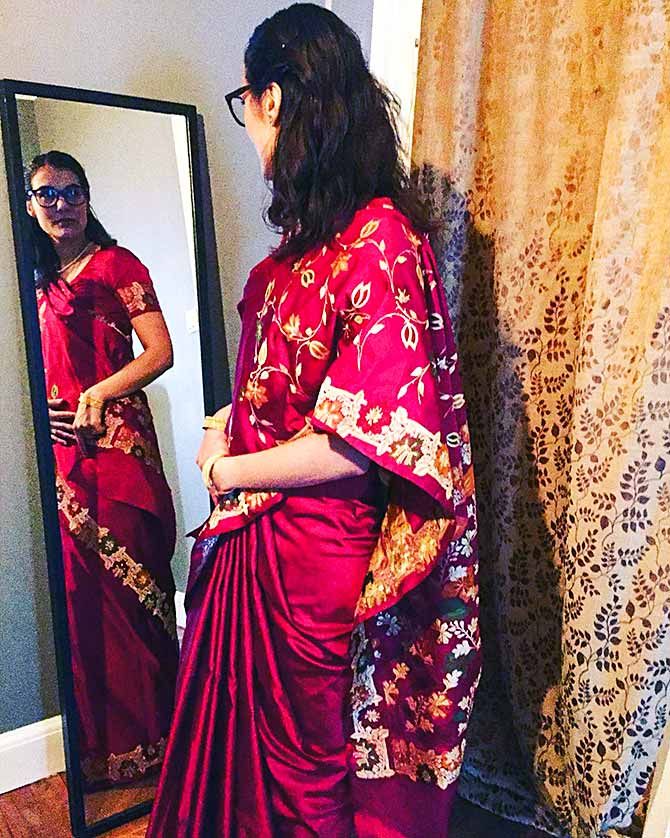
"Every time I visit India I learn something new and want to stay longer. Every time I return to Sweden I am happy to be back home again where everything works according to schedule and expectation. Visiting India is like attending a long party, but Sweden is for me (is about) relaxing at home in my pajamas."
Even if one has the capacity to forget who one is, the world never does. So how do people see past Nila's distinctive double barrelled name to who she is actually?
How does Nila accommodate both her identities? Which identity gets the better of the other? "I have little of an Indian accent when I speak English."
"My most Swedish trait is that I love the quiet of the forest and countryside and enjoy being alone just breathing fresh air."
"My most Indian trait is my name and my love for coriander and rice."
"Before I lived in India for a longer time, alone as an adult, I did not know what it was really to be half-Indian. But my years in India taught me a lot about India and myself and how Swedish I really am."
Most persons of mixed identity have the lifelong task of explaining to each place they belong to about the other place they also belong to. There is always so much that one culture does not understand about another. '
"The Swedes don't understand that India is the second largest country in the world and that this means that India is a world in its own. It is difficult for Swedes to understand that the richest man and the poorest woman can share the same love for the flag. That a country both can have a female president and at the same time female feticide."
"The sheer size of India and its complexity is very difficult for a Swedish person to understand."
Looking at Nila's face, with its lively features, bright brown eyes, in her photographs, one marvels at how well she might fit into either country. It is a kind of dhup-chau face, that shines with both Indian and Nordic characteristics.
In Sweden it would look Swedish and in India its Indian features would be quite at home.
"I feel Sweden has given me independence and self-confidence. India has given me a profound understanding that keeping an open mind is very important. I love long walks and yoga -- both are important to keep a calm, focused and clear mind and thought."
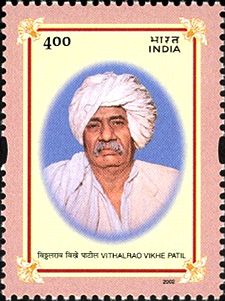
"In Sweden we value our serenity and in India we value our relationships, my background makes me value both aspects of life. I have also learnt to make my own decisions and trust my own judgment as I know there is always more than one solution and as many types of logic as there are people."
"I feel that (being half Indian and half Swedish) maybe (was) a disadvantage when I was younger. I felt a bit lost".
"Now I feel it is an advantage as I can think out the box," says the Swedish great granddaughter of Vithal Eknath Rao Vikhe Patil.
Lead image: Kind courtesy Nila Vikhe Patil
